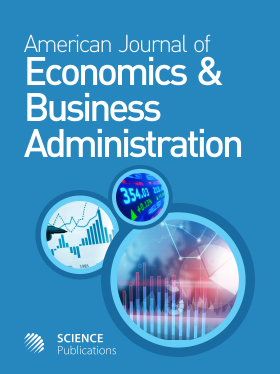Roles of Macroeconomic Variables on Agricultural Diversification in Nigeria
- 1 Akwa Ibom State University, Nigeria
Abstract
The study examined the trend in agricultural diversification index from 1960 to 2014 in Nigeria. It also determined the influence of some macroeconomic variables on the estimated index. Augmented Dickey-Fuller-GLS unit root test showed that all series were integrated of order one. The long-run and short-run elasticity of the agricultural diversification index with respect to the specified macro-economic variables were determined using the techniques of co-integration and error correction models. The trend analysis revealed that, the country has witnessed appreciable level of agricultural diversification with 0.3%, 0.5% and 2.3% annual exponential growth rate in entropy diversification index, Herfindhal diversification index and Ogive diversification index respectively. The estimation of the error correction model supported the long run stability of agricultural diversification index in Nigeria. The empirical results revealed that, in the long run inflation, viable manufacturing sector, credit to agricultural sector, external reserves, per capita income, unemployment and energy consumption are positive drivers of agricultural diversification; whereas, crude oil prices, lending capacity of commercial Bank, foreign direct investment in agricultural sector and non-oil import are long run negative drivers of agricultural diversification in Nigeria. However, in the short run, inflation, external reserves and non-oil imports stimulated agricultural diversification; while energy consumption and manufacturing capability retard agricultural diversification in the country. A ten-year forecast was made on the estimated diversification indices and the result showed a progressive growth. The empirical results were further substantiated by the variance decomposition and impulse response analysis of the dependent variable with respect to changes in the explanatory variables. Results obtained were in line with the previous results. It is recommended that, the Nigeria government should re-aligned its macroeconomic policies to achieve stability in inflation rate, external reserves, industrial production, electricity consumption, agricultural credit institution if sustainable agricultural diversification is to be achieved in the long run.
DOI: https://doi.org/10.3844/ajebasp.2015.77.93

- 6,140 Views
- 4,217 Downloads
- 6 Citations
Download
Keywords
- Agriculture
- Diversification
- Macroeconomics
- Nigeria
- Economy
